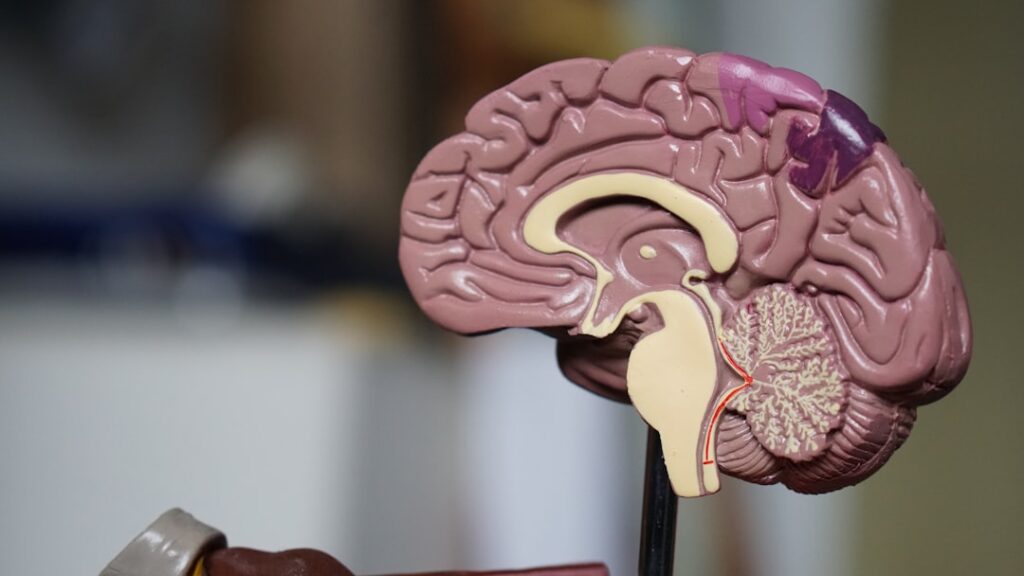Your brain is your body’s command center, and keeping it sharp doesn’t require complicated routines. This article shares simple, science-backed methods to help you stay mentally agile. From daily habits to engaging activities, you’ll discover how small changes can make a big difference.
Research from trusted sources like Medical News Today shows that regular mental exercises may support long-term brain health. Think of it like strength training for your mind—consistent effort builds resilience. We’ll explore practical strategies anyone can use, whether you’re a busy professional or simply looking to stay sharp.
What makes these tips stand out? They’re rooted in evidence, not trends. You’ll learn how everyday choices—from what you eat to how you unwind—shape your ability to process information. Our goal is to help you feel empowered, not overwhelmed.
Ready to take charge of your mental well-being? Let’s dive into realistic approaches that fit seamlessly into your life. No miracle cures—just actionable steps backed by research and real-world results.
Understanding Cognitive Health and Its Benefits
Think of your brain as a high-performance engine—it thrives when properly maintained. Let’s unpack what keeps this vital organ running smoothly and why it matters for everyone, from students to retirees.

Defining Cognitive Function
Cognitive abilities are the mental tools we use daily. They include:
- Remembering appointments or names (memory)
- Focusing during conversations (attention)
- Choosing between options at the grocery store (decisions)
Studies show these skills naturally change with age. For example, cognitive health in older adults often involves adapting to shifts in processing speed while maintaining core abilities.
Benefits of a Healthy Brain
A well-functioning mind helps people:
- Learn new recipes or hobbies faster
- Stay calm during stressful situations
- Maintain independence in daily tasks
Children with strong cognitive foundations often excel in language development and problem-solving. For adults, sharp mental activity supports career growth and personal relationships. Even simple activities like reading or puzzles can reinforce these advantages across all ages.
Natural Approaches to Improve Cognitive Function
Everyday habits hold surprising power for mental sharpness. Simple choices—like swapping processed snacks for walnuts or blueberries—feed your brain essential nutrients. Studies suggest omega-3 fatty acids in fish and antioxidants in dark chocolate support neural connections, making them tasty allies for your mind.

Mental workouts don’t require apps or gadgets. Try memorizing grocery lists or learning guitar chords—these activities strengthen problem-solving skills. Even 10 minutes of daily puzzles can build mental flexibility, much like stretching keeps muscles limber.
Stress management plays a key role too. Deep breathing exercises or evening walks help calm racing thoughts. Research shows relaxed minds absorb information more effectively, turning ordinary moments into learning opportunities.
Three natural strategies stand out:
- Food first: Prioritize leafy greens, berries, and nuts
- Stay curious: Explore new hobbies or languages
- Rest actively: Practice mindfulness during routine tasks
These approaches work because they engage multiple brain regions simultaneously. Cooking a new recipe, for instance, combines planning, sensory awareness, and creativity. Small, consistent efforts often yield lasting benefits for memory and decision-making skills.
Brain Exercises and Training Techniques
Sharpening mental abilities can be as fun as it is rewarding. Research from Medical News Today reveals that regular mental workouts—like memory games—boost recall by up to 20% in adults. Let’s explore playful yet powerful ways to keep your mind engaged.

Memory Games, Crosswords, and Puzzles
Classic activities like Sudoku or crossword puzzles aren’t just entertaining. A 2023 study found they strengthen problem-solving skills by activating multiple brain regions. Try these options:
- Scrabble: Enhances vocabulary and strategic thinking
- Jigsaw puzzles: Boost spatial reasoning in people of all ages
- Memory match games: Sharpen short-term recall during quick play sessions
Even modern video games like strategy-based apps can train attention and decision-making. Board games like chess encourage players to anticipate moves, creating mental flexibility that translates to real-life scenarios.
Visualization and Meditation Practices
Quiet moments pack a punch for mental clarity. Daily meditation sessions as short as 10 minutes help people filter distractions more effectively. Pair this with visualization exercises:
- Imagine completing tasks step-by-step before starting them
- Picture familiar places to enhance spatial memory
- Use guided imagery apps for structured practice
These techniques work because they teach the brain to focus energy where it matters most. Whether you’re solving a crossword or visualizing success, you’re building skills that make daily activity feel effortless.
Physical Activity for Enhanced Brain Health
Movement does more than shape your body—it’s fuel for your mind. The CDC guidelines on physical activity reveal that just 150 minutes of weekly movement strengthens memory and decision-making skills. Let’s explore how staying active becomes your brain’s best ally.

Aerobic exercises like brisk walking or swimming increase blood flow to the brain, delivering oxygen-rich nourishment. Resistance training, such as lifting weights, enhances executive functions in adults by stimulating growth factors. Studies show combining both types yields the strongest results for long-term brain health.
Daily movement ideas for all ages:
- Young adults: Dance workouts or cycling
- Middle-aged: Lunchtime walks and weekend hikes
- Seniors: Chair yoga or tai chi sessions
Data from multiple studies shows active adults maintain sharper recall even 20 years later. The secret? Physical activity triggers protein release that strengthens neural connections. Start small—take stairs instead of elevators or walk during phone calls. Your brain thrives on consistency, not intensity.
Enhancing Mental Clarity Through Mindfulness
Mental clarity isn’t about emptying your mind—it’s about training it to focus. Simple mindfulness practices can sharpen your ability to process information while calming mental chatter. The National Center for Complementary and Integrative found regular meditation reduces stress hormones by 14% in adults, creating space for clearer thinking.

- Breathe with purpose: Try 4-7-8 breathing (inhale 4 seconds, hold 7, exhale 8) to reset during busy days
- Body scans: Mentally check in from toes to head—great before bed
- Mindful meals: Focus on flavors and textures instead of screens
Quality sleep acts like a nightly tune-up for your brain. Studies show 7-9 hours helps consolidate memories and boosts problem-solving skills. Pairing nighttime meditation routines with consistent bedtimes creates a powerful combo for mental freshness.
Research highlights surprising benefits. Hospital workers using mindfulness techniques reported 23% better focus during shifts. Students practicing breathwork before tests showed improved language recall. Even 5-minute sessions while waiting in line can make a difference.
Why not experiment this week? Try one technique during your morning coffee or commute. Small steps often lead to noticeable shifts in how you navigate daily challenges.
Social Interaction and Cognitive Vitality
Conversations can be powerful brain boosters. A 2022 study found that adults who engage in regular chats have 15% better memory retention than those with limited social contact. Why? Talking activates areas linked to problem-solving and emotional processing—like a full-body workout for your mind.
Group activities offer double benefits. Book clubs or trivia nights combine social bonds with mental challenges. For older adults, community gardening or card games keep both hands and minds busy. Research shows these interactions lower dementia risk by 26% over ten years.
Practical ways to connect:
- Join local walking groups (combines regular physical activity with conversation)
- Host monthly board game nights with neighbors
- Volunteer at libraries or community centers
Even small exchanges matter. Chatting with baristas or greeting strangers during walks counts. A Harvard study revealed that socially active people maintain sharper decision-making skills well into their 80s. Your brain thrives on variety—mix deep talks with lighthearted banter for best results.
Remember: Laughter shared over coffee fuels your mind as much as crossword puzzles. Make social plans part of your weekly routine, just like exercise or meal prep. Your neurons will thank you.
The Role of Quality Sleep in Cognitive Retention
Sleep acts as your brain’s nightly maintenance crew—sorting memories and resetting mental resources. The National Institute of Neurological Disorders and Stroke found that deep sleep stages help solidify new information, making recall 40% more reliable. Without this nightly tune-up, your mind struggles to organize experiences into lasting knowledge.

Missing even 90 minutes of nightly rest can impair attention and decision-making. Studies show sleep-deprived drivers perform similarly to those with a 0.08% blood alcohol level. Over time, chronic shortages increase risks for mental decline by weakening neural pathways.
- Memory boost: REM sleep helps transfer short-term memories to long-term storage
- Focus shield: 7-9 hours nightly filters distractions during complex tasks
- Error prevention: Well-rested people make 30% fewer mistakes in routine activity
Most research agrees adults need 7-9 hours for peak cognitive performance. Try creating a bedtime routine with calming rituals like reading or herbal tea. Dim lights 60 minutes before bed and keep screens out of reach—your brain will thank you come morning.
Learning New Skills and Languages
Exploring unfamiliar territories mentally can unlock hidden potential. A University of Edinburgh study found bilingual adults develop dementia symptoms 5 years later than monolingual peers. This isn’t just about vocabulary—learning new languages reshapes how your brain processes information.
Neuroscientists discovered bilingualism enhances connectivity between brain regions. The anterior cingulate cortex—a area managing focus—becomes more active during language switching. This mental flexibility spills over into daily tasks, from multitasking to creative problem-solving.
Three engaging ways to start:
- Cook cultural dishes: Follow recipes in another language
- Try musical instruments: Reading sheet music activates pattern recognition
- Use kid-friendly apps: Platforms like Duolingo ABC make language learning playful for children
Recent research reveals surprising benefits. A 2023 Penn State study found 45 minutes of daily language practice boosts memory retention in six weeks. For adults mastering new skills like photography or coding, brain scans show increased gray matter density.
Don’t worry about perfection—the effort matters most. As one polyglot told The New York Times, “Messing up grammar still fires up your prefrontal cortex.” Whether you’re 8 or 80, today’s the perfect time to start that Spanish podcast or pottery class.
Brain-Boosting Nutrition and Lifestyle Habits
Your plate holds more power than you think—especially when it comes to mental sharpness. Colorful berries, leafy greens, and fatty fish aren’t just tasty. Research shows these foods deliver antioxidants and omega-3s that protect neural pathways, making meals a delicious defense strategy.
- Morning upgrade: Oatmeal with walnuts instead of sugary cereal
- Hydration hack: Infuse water with citrus slices for vitamin C
- Snack smart: Dark chocolate (70%+) instead of candy bars
Meal timing matters as much as content. Eating every 3-4 hours stabilizes energy levels, helping adults make clearer decisions throughout the day. Pair this with consistent bedtimes—sleep patterns directly affect how your brain processes information.
For families, involve children in grocery shopping. Let them pick colorful produce while discussing its benefits. Studies reveal kids who help prepare meals are 40% more likely to try new foods, building lifelong health habits.
Last tip? Stay curious. Learning a new language or instrument while maintaining good nutrition creates powerful synergy. Your brain thrives on variety—feed it well, challenge it often, and watch how small changes enrich your daily life.
Utilizing Games and Puzzles to Stimulate the Brain
Game nights might be your secret weapon for staying sharp. Research reveals playful challenges like chess or Sudoku activate neural networks similar to solving real-world problems. A 2021 JAMA study found older adults who play board games weekly have 15% lower risk of mental decline over five years.
Why do puzzles work so well? They force your mind to juggle patterns, logic, and memory simultaneously. Take crossword puzzles—they boost vocabulary while strengthening recall. Digital apps like Lumosity take this further, offering personalized challenges that adapt as your skills grow.
Three game types with proven benefits:
- Strategy games: Chess teaches foresight and adaptability
- Number puzzles: Sudoku enhances logical reasoning
- Word games: Scrabble builds verbal fluency and creativity
For those seeking social activity, trivia nights or group puzzle-solving sessions add teamwork to the mix. A University of Michigan study found adults completing daily Sudoku puzzles showed 12% faster problem-solving speeds in six weeks. Even 20 minutes of Tetris can sharpen spatial awareness—proving screen time isn’t always wasted time.
Ready to play your way to a stronger mind? Dust off that chessboard or download a brain-training app. Your neurons will thank you every time you checkmate a challenge.
Managing Cognitive Decline and Mental Health
Recognizing shifts in mental sharpness early makes a world of difference. A 2023 Neurology study found adults who notice recurring forgetfulness or difficulty following conversations often benefit most from early action. Simple strategies like weekly memory checks or tracking daily tasks can reveal patterns worth discussing with healthcare providers.
Lifestyle tweaks play a crucial role in maintaining mental wellness. Regular social activities and Mediterranean-style diets rich in olive oil and fish show 37% lower dementia risk in long-term studies. Pair these with:
- Daily brain checks: Use apps to test recall or attention spans
- Stress buffers: Evening yoga sessions or nature walks
- Skill rotation: Alternate between puzzles and creative hobbies
Surprising allies emerge in research. A Johns Hopkins trial discovered adults playing strategy-based video games three hours weekly maintained sharper attention over two years. These games challenge spatial reasoning and quick decision-making—skills that often decline first.
Monitoring progress matters as much as prevention. Annual cognitive assessments become vital after 50, though younger adults with family history should consider baseline testing. Open conversations about mental health reduce stigma while fostering supportive communities ready to tackle challenges together.
Integrating Physical and Mental Wellness Practices
Your morning jog could be doing more than toning muscles—it might be sharpening your mind too. The CDC recommends pairing physical activity with mental challenges for maximum benefit. Think dance classes where you memorize routines or hiking trails where you identify plants using a nature app. These hybrid activities engage both body and brain simultaneously.
A 2022 study found adults who combined exercise with puzzles or language practice showed 27% better problem-solving ability than those doing either alone. Why? Movement increases blood flow, while mental tasks build neural connections. Together, they create a powerhouse effect for overall wellness.
Try these balanced approaches:
- Yoga with affirmations: Recite positive phrases during poses
- Group sports: Basketball requires quick decisions and teamwork
- Gardening clubs: Learn plant biology while digging and planting
Research from the National Institutes of Health reveals regular walkers who learn new skills like photography maintain sharper memory recall. Even simple swaps help—listen to educational podcasts during treadmill sessions instead of music. Your brain thrives when challenges come from multiple directions.
Start small: Add a five-minute word game after your daily walk. Over time, these paired practices become second nature—and your mental and physical health reap the rewards together.
Conclusion
Maintaining mental sharpness doesn’t require drastic changes—it thrives on small, consistent efforts. The strategies we’ve explored, from nutrient-rich diets to engaging social activity, work together to support a vibrant mind. Research from trusted institutions like the National Institutes of Health confirms that combining physical fitness with mental challenges yields lasting benefits.
Simple daily ways to stay sharp include adding walnuts to meals for brain-friendly fats or swapping screen time for a brisk walk. Social interactions, like joining a book club, strengthen decision-making skills while reducing dementia risk. Even learning a few phrases in a new language through apps can spark neural growth.
Why not start today? Try one change this week—a puzzle during lunch or a dance class with friends. These fun ways to stay engaged make mental wellness feel effortless. Every choice adds up, whether you’re boosting fitness or practicing mindfulness during chores.
Remember, your life benefits most when you mix science-backed habits with personal joy. Stay curious, stay active, and let ongoing research guide your journey. Your brain’s potential grows with every small step you take.
